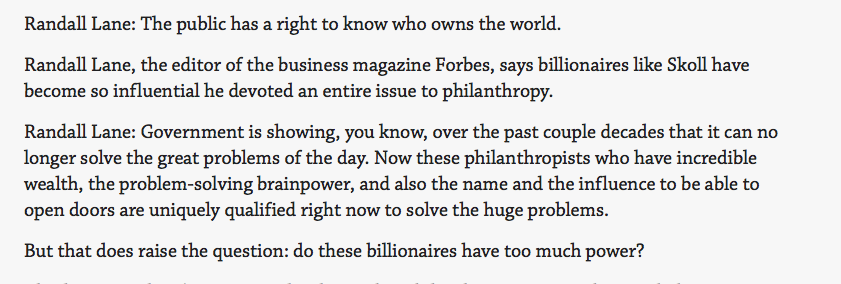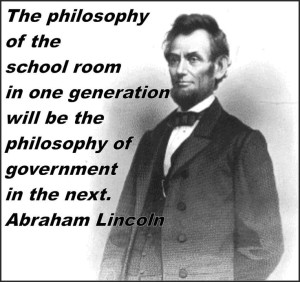What parents desire for their children’s schools has been largely ignored in the education policy debate for decades. So was this recent article.
Laurie Levy’s community differs from my own (hers more affluent while mine is poverty-stricken) but our desires, as parents, seem almost universal. She wrote her article based on what other parents had written in a response to two questions: What conditions promote learning? And, what is an optimal learning environment? (Italics and “bolding” is mine.)
- Make space and time for kids to pursue individual, passion-based learning projects.
- Incorporate much more movement throughout the day, especially in winter.
- Make history and literacy assignments culturally relevant.
- Ensure that kids have enough time to eat lunch every day. The break for lunch and recess should be a minimum of an hour per day.
- Focus on building community, both within classrooms and within the whole school.
- Provide opportunities to drink water during the day. Some teachers still don’t let kids get water, which obviously makes learning hard. (OMG on that one!)
- Set up “quiet corners” or areas where kids can go when they need a break.
- Make classrooms well-organized, so kids feel comfortable and safe. It’s time to de-clutter some spaces.
- Consider what we are forcing our children to endure in order to cram them full of testable content to satisfy the insatiable maw of the “education” industry. The kids need more art, more recess, less testing, and less lecturing.
- Target and celebrate learning for all types of learners. Maybe pieces of the current curriculum don’t work well for some learners (e.g. the language heaviness of Everyday Math).
- Have more free time where kids can just be kids and run around…a calm, stress free environment where learning comes naturally.
- Remember what the “square-peg child” needs to learn: more child-driven, open-ended time and spaces; quiet spots to take a break from the intensity of being with other kids all day long; more hands-on materials and activities.
- Put away the standardized testing, except in the most minor way, until middle school. If it has to be done, don’t put so much time into preparing for it.
- [Consolidated and paraphrased by me] Developmentally appropriate practice/methods (meaning the material keeps in mind the capacity of children’s working memory at different ages i.e. more concrete learning and explanations for younger learners, moving gradually toward abstract concepts and the ability to reflect on one’s own thinking as they approach middle school) where learning is broken into reasonable time segments with frequent breaks to improve attention throughout the day to better facilitate long-term memory.
- [Consolidated and paraphrased by me] Classrooms are created by teachers that are educated, supported, and coached in classroom management best practices that create a warm supportive, safe, secure, community environment where students are given attainable tasks based on student interest, learning style, and strengths to make learning engaging, meaningful, and naturally motivate students to succeed. They create a place where success is a model to be emulated and assessments are what teachers use to measure if students understand and then instruction is adjusted accordingly.
This was Ms. Levy’s summary of what parents want:
- less time spent on teaching to standardized tests and fewer of those tests,
- learning environments that actually are conducive to learning,
- their kids to be viewed as unique individuals with differing needs and to see their learning styles supported and respected,
- learning environments to promote physical and mental health, with sufficient breaks for play and exercise,
- their children to feel less stress and anxiety about school,
- their kids to love learning and have the tools to go wherever their curiosity takes them.
All in all, my take is that parents seem to be saying that they want assurance (accountability) for a standard of educational practices that will provide high-quality learning opportunities in an environment that fosters development of their child’s talents and allows them to explore their interests.
If there is anything that we should have learned from the failure of standards-based reforms – and the No Child Left Behind law – it is that high quality learning experiences are much more important than “meeting” any set of standards we have ever developed. We can have standards-referenced curricula without the detrimental unintended consequences of our current standards-based federal accountability scheme.
Repeatedly we hear said that parents are important but education policies do not reflect that fact. The No Child Left Behind (NCLB) parental piece was without substance. (Update 8/26/18: NCLB’s replacement – ESSA – is proving to be worse than NCLB.)
Federal education law continues to ignore parental involvement as a reform.…So it’s up to us to focus on giving all children the best opportunities to learn. Let’s give the parental voice the respect it deserves and quit putting policies in place that create stress in families. Respect the family unit. Respect the child.
Parents, do your jobs well and expect the same from all those involved in your child’s education – including policy-makers.
What parents might not realize is that what they desire can be collectively seen as quality in the child’s classroom experiences and school environment. Those are elements of the “opportunity to learn” standards. There are indicators for judging their quality and availability!.….That’s what parents want from an accountability mechanism.….Time to start making that demand?














